Museveni endorsed as 2026 NRM presidential flagbearer, national chairman
The endorsement, which came unopposed, was announced on Wednesday (August 27) during the first meeting of the fifth NRM National Conference held at the Kololo Ceremonial Grounds in Kampala, attended by more than 23,000 delegates from across the country.
President Yoweri Kaguta Museveni addressing the first meeting of the fifth NRM National Conference held at the Kololo Ceremonial Grounds in Kampala. (PPU)
______________
President Yoweri Kaguta Museveni has officially accepted and welcomed his endorsement as the National Resistance Movement (NRM) presidential flagbearer for the 2026 general election and as national chairman of the ruling party for the 2025–2031 term.
The endorsement, which came unopposed, was announced on Wednesday (August 27) during the first meeting of the fifth NRM National Conference held at the Kololo Ceremonial Grounds in Kampala, attended by more than 23,000 delegates from across the country.
Accompanied by the First Lady and Minister of Education and Sports, Janet Kataha Museveni, the President expressed gratitude to the party and its structures for entrusting him with the leadership mantle once again.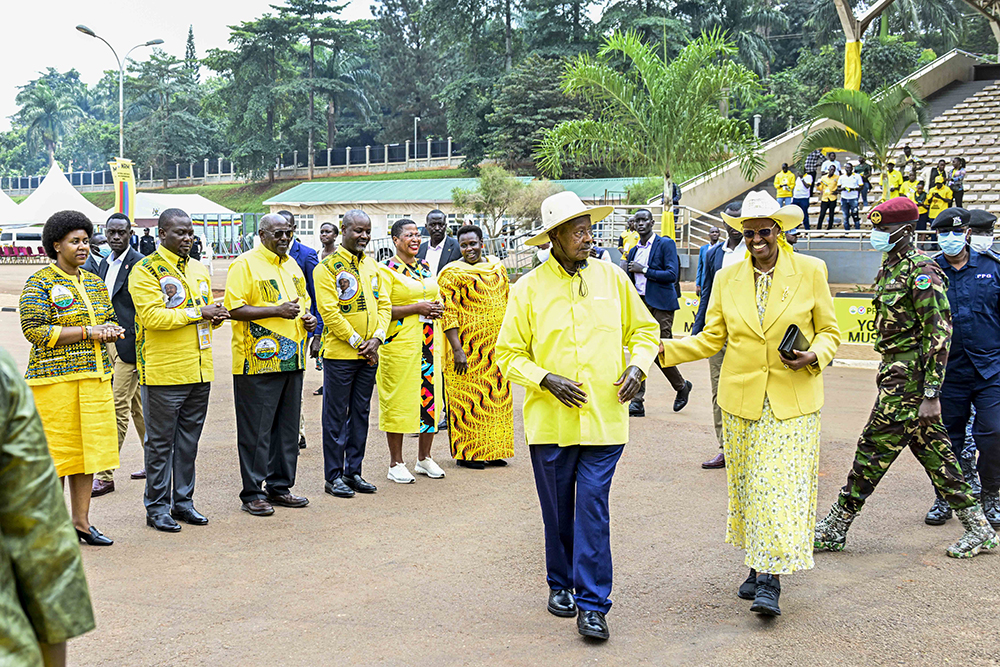
President Yoweri Kaguta Museveni accompanied by the First Lady and Minister of Education and Sports, Janet Kataha Museveni.
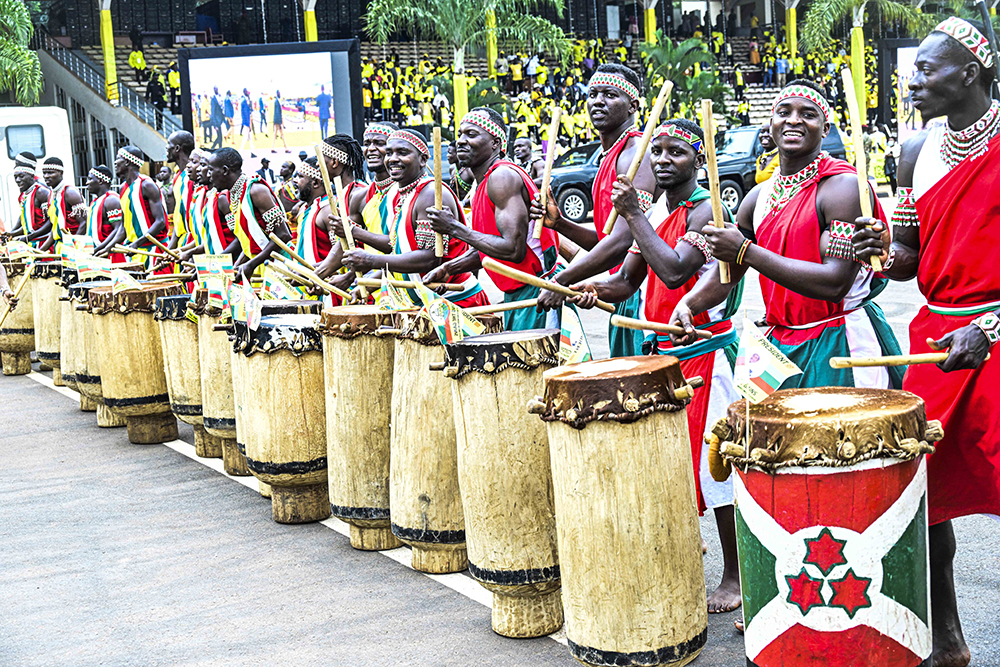
Cultural dancers entertaining guests.
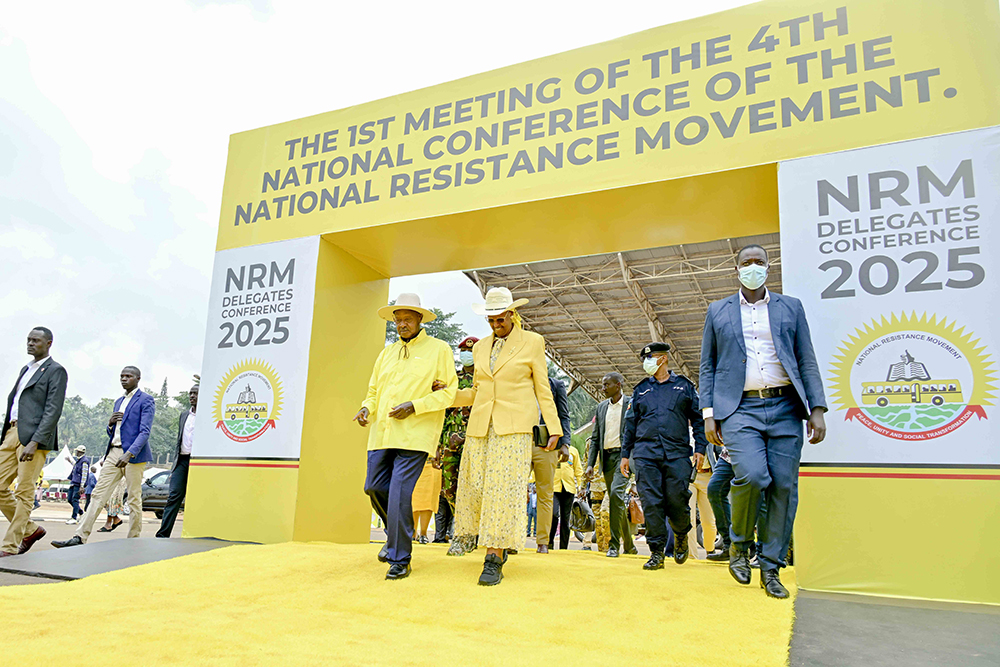
President Yoweri Kaguta Museveni accompanied by the First Lady and Minister of Education and Sports, Janet Kataha Museveni.
“I thank you for entrusting me to be your chairman of the NRM for the period 2025–2031. Thank you so much,” he told the meeting.
“Thank you for electing me as your flagbearer for the presidential contest for the position of President of Uganda for 2026–2031. I will not let you down. We have got more capacity now than ever before."
Museveni further praised the masses of NRM members across the country, the Central Executive Committee (CEC), the National Executive Council (NEC), and the National Conference delegates for supporting his expression of interest in both positions.
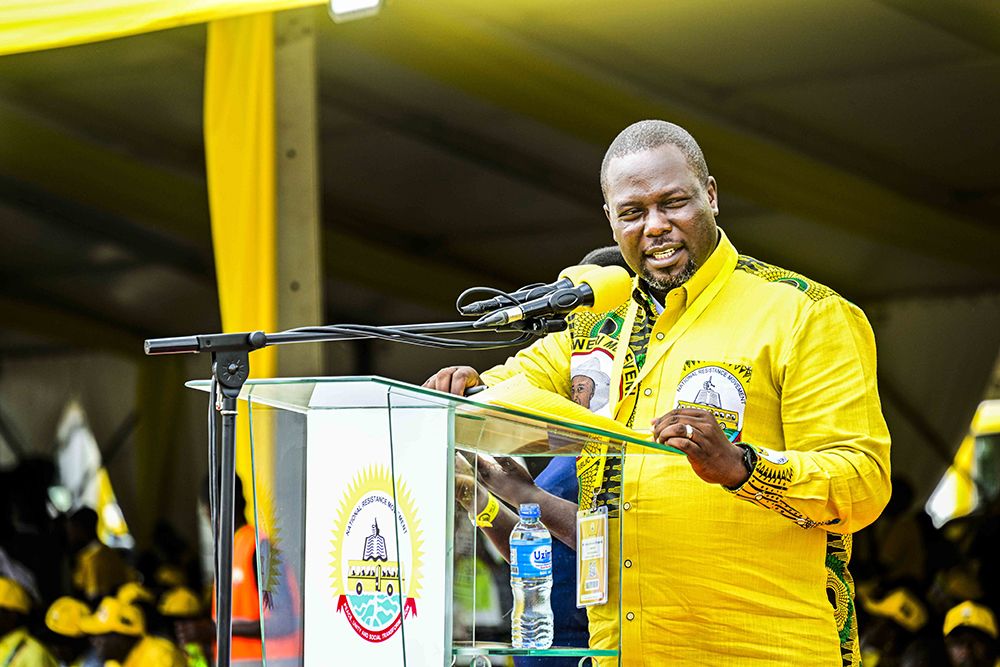
Party secretary general Richard Todwong.
Party secretary general Richard Todwong told the delegates that the NRM's top organs, including the CEC and NEC, had unanimously endorsed President Museveni as the sole presidential flagbearer for the 2026 general election.
Similarly, the NRM electoral commission chairperson, Dr Tanga Odoi, declared Museveni unopposed for both the NRM national chairperson and presidential flagbearer positions.
“On behalf of the NRM electoral commission, I now present to the conference the candidate Yoweri Kaguta Museveni for the position of presidential flagbearer,” he announced, drawing huge applause.
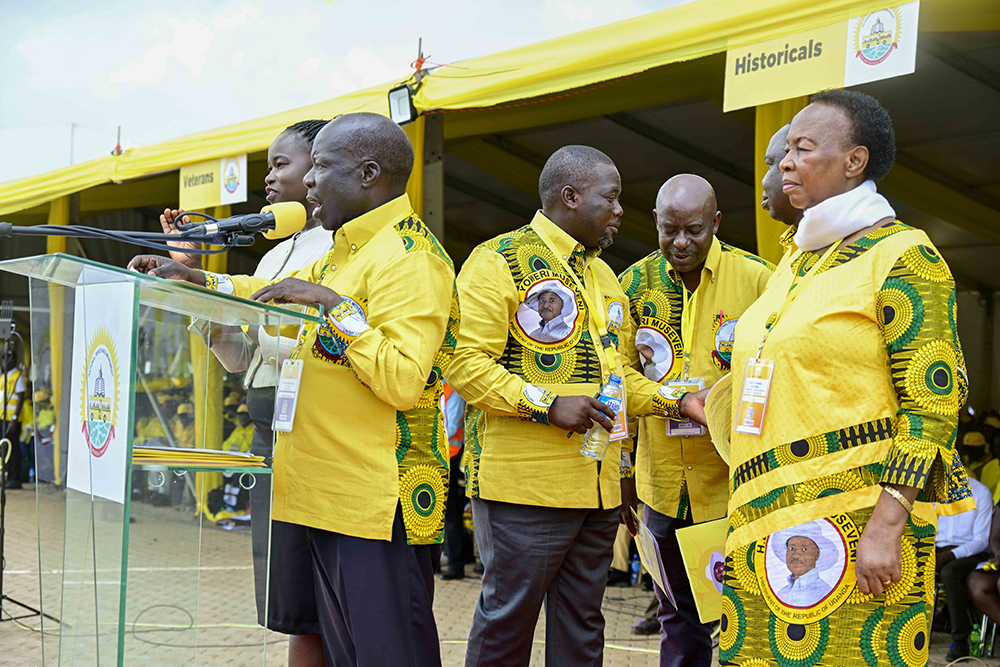
NRM electoral commission chairperson, Dr Tanga Odoi.
Alongside Museveni’s endorsement, Al-Hajji Moses Kigongo was also re-elected unopposed as the first national vice-chairperson of the NRM.
Congratulating him, Museveni described Kigongo as a “senior cadre of the NRM who has served the party since 1980".
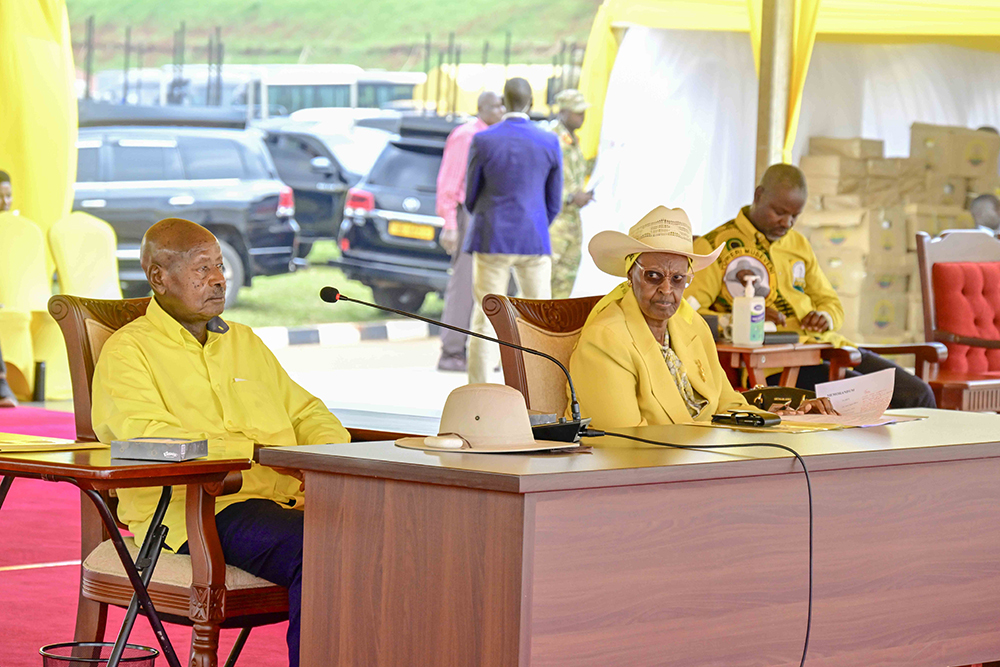
President Yoweri Kaguta Museveni and First Lady and Minister of Education and Sports, Janet Kataha Museveni.
The President also congratulated the newly elected leaders of various NRM party positions. But he was also keen to offer a word of caution and advice.
“I congratulate you, but I want to give you advice. Be the leaders who solve the solvable problems, and the people will love you. But don’t carry the population on your head. Lead them by using government resources, not your own money. This is where corruption comes about, by trying to fund everything, yet you don’t even have enough money," he said.
The conference marked a pivotal moment in Uganda’s political calendar, with delegates choosing the leaders who will steer the ruling party through the next five years.
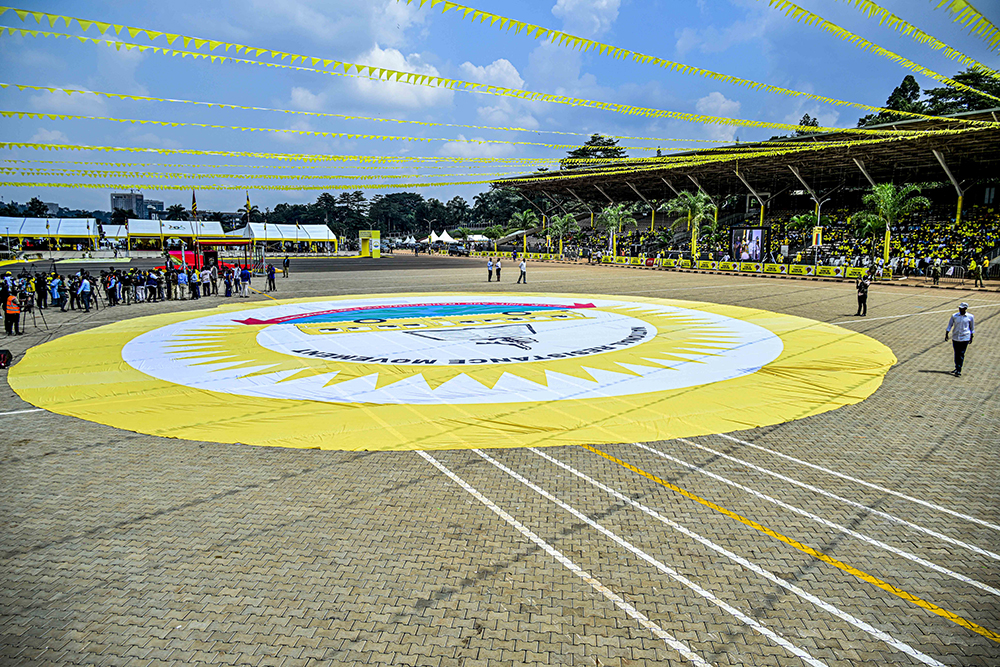
A historical and economic reflection
Museveni also took delegates through a detailed reflection on Uganda’s economic history, from colonial times to the present, highlighting the transformation achieved under the NRM since 1986.
He noted that at independence in 1962, Uganda’s economy was narrowly based on six key exports: the “3Cs” (coffee, cotton and copper) and the “3Ts” (tea, tourism and tobacco). This enclave economy covered just 9% of homesteads, leaving 91% of Ugandans in subsistence farming.
By the time Idi Amin’s regime collapsed in 1979, cotton, copper, tea, and tourism had collapsed, leaving only coffee and tobacco “limping on”.
The President said the economy had been reduced to informal survival mechanisms, including smuggling, the forex black market and speculation.
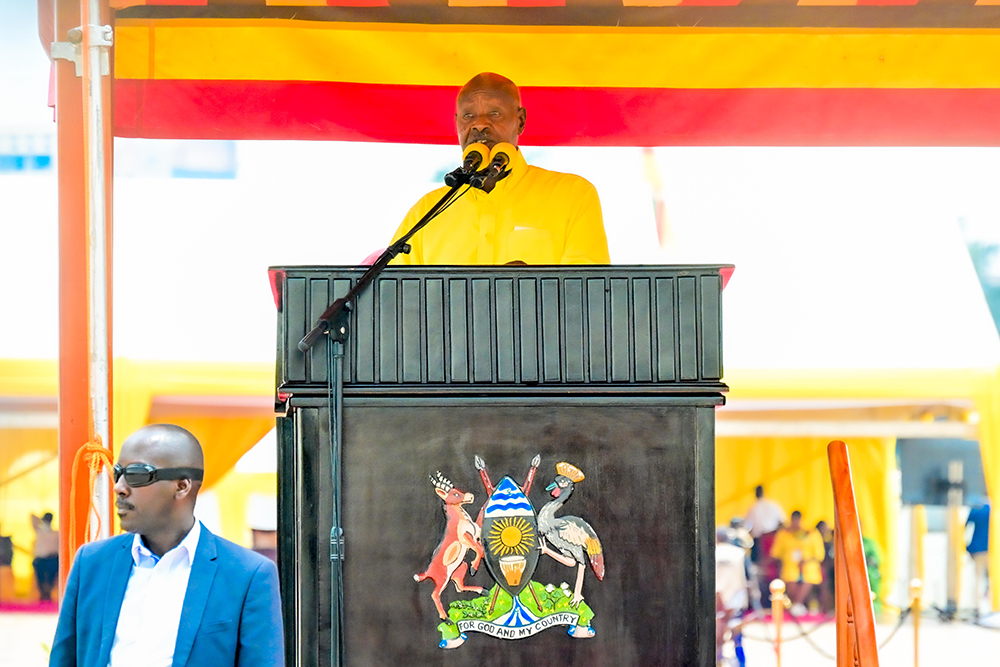
President Yoweri Kaguta Museveni.
The NRM, he said, took on the task of reviving the economy through five distinct phases of minimum economic recovery, expansion of the enclave economy, diversification, value addition and knowledge economy.
“As a result, Uganda’s GDP has grown from $3.9 billion in 1986 to $66.1 billion (forex method) and $188 billion (PPP method) by the close of the 2025/2026 financial year. The economy of Uganda has expanded 17 times since 1986, despite the corruption and disorientation of some of the actors,” said Museveni.
He projected a qualitative leap towards a $500-billion economy, anchored on peace, infrastructure, wealth creation, jobs, services, and markets.
The President outlined seven guidelines towards Uganda’s continued progress: peace, development, wealth, jobs, services, markets, and political federation.
He emphasised that peace was the foundation of prosperity and cautioned Ugandans to resist electoral friction, noting that the NRM has delivered 40 years of peace, a feat unmatched since pre-colonial times.
“Without peace, you cannot create prosperity, which is number one of our historical missions. Through correct politics, emphasising interests (business, markets, services, etc.) instead of identity (tribes, religious sectarianism, gender chauvinism). This has enabled us to unite our people politically and create strong national institutions such as the army, political parties, police, etc."
About wealth, Museveni urged Ugandans to focus on the four sectors of commercial agriculture, manufacturing, services, and ICT.
Citing success stories like Joseph Ijala of Serere district, who earns 1.4 billion shillings annually from just 2.5 acres, President Museveni insisted that wealth creation starts at the family level and later expands to create jobs that stem from wealth creation, not government payrolls.
“Government jobs are only 480,000. Factories and commercial farming have created more jobs than the government. Uganda has 40 million acres of arable land, and even if seven million acres are put to use, the country could generate 500 million jobs,” he said.
Regarding strategic security, he warned that while prosperity is necessary, it is not sufficient for strategic security. With major global powers advancing into space and dominating in four dimensions (land, air, sea, and space), Uganda alone cannot match them.
“Even when Uganda becomes developed, can it be present in these four dimensions? My answer is no. Africa needs political integration to ensure strategic security,” said Museveni.
He hailed the Continental Free Trade Area (CFTA) as a step toward prosperity but emphasised that the East African political federation would consolidate both economic growth and security, leveraging shared language and cultural similarities, especially through Swahili.
Al-Hajji Kigongo congratulated President Museveni upon his unopposed endorsement, pledging continued loyalty and service to the party.
“I am very happy and thank you very much for what you have done ever since you came here. Thank you for giving us a chance to continue serving this country. We are not going to let you down.”
The conference attracted a broad spectrum of Ugandan leaders and international guests, including representatives from Burundi, Rwanda, Kenya, South Africa, China, and the Saharawi Republic, high commissioners and ambassadors.